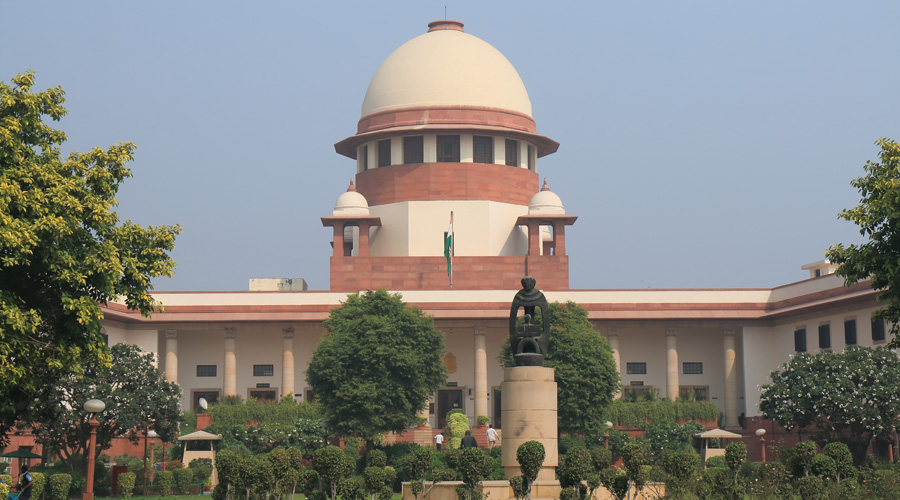The Supreme Court on Thursday expressed concern over the misuse of "colonial-era" penal law on sedition and sought response of the Centre on pleas including the one filed by the Editors Guild of India challenging the validity of the provision.
A bench headed by Chief justice N V Ramana and comprising Justices AS Bopanna and Hrishikesh Roy said the main concern was about the "misuse of law", and asked as to why the Centre, which is repealing stale laws, was not getting rid of this provision.
The sedition law was meant to suppress the freedom movement and was used by the Britishers to silence Mahatma Gandhi and others, the court noted.
Some guidelines may be laid down to curb misuse of sedition law, Attorney General K K Venugopal said while defending the validity of the provision.
The bench was hearing a fresh plea by former army officer Major-General S G Vombatkere (Retd) challenging the Constitutional validity of section 124 A (sedition) of the IPC on grounds that it causes a "chilling effect" on speech and is an unreasonable restriction on free expression, a fundamental right.
"The sedition law is a colonial law. Do we still need the law in our country after 75 years of Independence," CJI Ramana asked, according to a report by ndtv.com.
The bench noted that several petitions have challenged the sedition law and all will be heard together. "Our concern is misuse of the law and no accountability of the executive," it said.
The top court described the law as "a serious threat" to the functioning of institutions. "There is enormous power of misuse. We can compare it to the carpenter, instead of cutting wood, cutting the forest itself. That is the effect of this law," the CJI observed.
He added that there was "minimal conviction or very low rate of conviction" in the history of the law.
The plea, filed by Major-General S G Vombatkere (Retd) submitted that Section 124-A of the Indian Penal Code, which deals with the offence of sedition, is wholly unconstitutional and should be unequivocally and unambiguously struck down".
The petitioner contends that a statute criminalising expression based on unconstitutionally vague definitions of 'disaffection towards Government' etc. is an unreasonable restriction on the fundamental right to free expression guaranteed under Article 19(1)(a) and causes constitutionally impermissible 'Chilling Effect' on speech", the plea said.
The petition said there is need to take into account the "march of the times and the development of the law" before dealing with Section 124-A.
Earlier, a separate bench of the top court had sought response from the Centre on a plea challenging the Constitutional validity of sedition law, filed by two journalists -- Kishorechandra Wangkhemcha and Kanhaiya Lal Shukla -- working in Manipur and Chhattisgarh respectively.
The Supreme Court's observation came days after Justice D.Y. Chandrachud made similar comments saying that criminal laws, including anti-terror legislations, should not be misused to quell dissent or harass citizens.
“While it is important that prisons are decongested because they are highly susceptible to becoming hot spots for the virus, it is equally important to examine why prisons are congested in the first place. The criminal law, including the anti-terror legislation, should not be misused for quelling dissent or for the harassment of citizens,” Justice Chandrachud told a seminar late on Monday night.
The sedition law under IPC Section 124A is being frequently used by the central and state governments to stifle any view critical of the dispensation in power. There has also been a growing tendency in the country to brand as “anti-national” dissenters and people expressing views contrary to those of the government.










